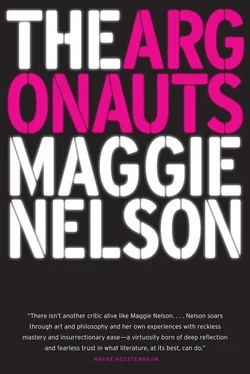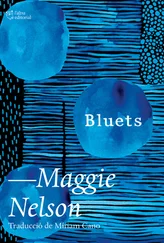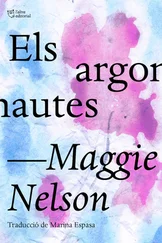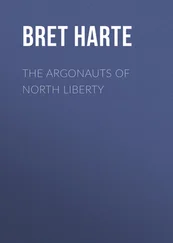How can the words not be good enough?
Lovesick on the floor of my friend’s office, I squint up at her as she scrolls through an onslaught of bright information I don’t want to see. I want the you no one else can see, the you so close the third person never need apply. “Look, here’s a quote from John Waters, saying, ‘She’s very handsome.’ So maybe you should use ‘she.’ I mean, it’s John Waters.” That was years ago , I roll my eyes from the floor. Things might have changed .
When making your butch-buddy film, By Hook or By Crook , you and your cowriter, Silas Howard, decided that the butch characters would call each other “he” and “him,” but in the outer world of grocery stores and authority figures, people would call them “she” and “her.” The point wasn’t that if the outer world were schooled appropriately re: the characters’ preferred pronouns, everything would be right as rain. Because if the outsiders called the characters “he,” it would be a different kind of he. Words change depending on who speaks them; there is no cure. The answer isn’t just to introduce new words ( boi, cisgendered, andro-fag ) and then set out to reify their meanings (though obviously there is power and pragmatism here). One must also become alert to the multitude of possible uses, possible contexts, the wings with which each word can fly. Like when you whisper, You’re just a hole, letting me fill you up . Like when I say husband .
Soon after we got together, we attended a dinner party at which a (presumably straight, or at least straight-married) woman who’d known Harry for some time turned to me and said, “So, have you been with other women, before Harry?” I was taken aback. Undeterred, she went on: “Straight ladies have always been hot for Harry.” Was Harry a woman? Was I a straight lady? What did past relationships I’d had with “other women” have in common with this one? Why did I have to think about other “straight ladies” who were hot for my Harry? Was his sexual power, which I already felt to be immense, a kind of spell I’d fallen under, from which I would emerge abandoned, as he moved on to seduce others? Why was this woman, whom I barely knew, talking to me like this? When would Harry come back from the bathroom?
There are people out there who get annoyed at the story that Djuna Barnes, rather than identify as a lesbian, preferred to say that she “just loved Thelma.” Gertrude Stein reputedly made similar claims, albeit not in those exact terms, about Alice. I get why it’s politically maddening, but I’ve also always thought it a little romantic — the romance of letting an individual experience of desire take precedence over a categorical one. The story brings to mind art historian T. J. Clark’s defense of his interest in the eighteenth-century painter Nicolas Poussin from imaginary interlocutors: “Calling an interest in Poussin nostalgic or elitist is like calling the interest one has, say, in the person one cares for most deeply ‘hetero- (or homo-) sexist,’ or ‘exclusive’ or ‘proprietorial.’ Yes, that may be right: those may be roughly the parameters, and regrettable; but the interest itself may still be more complete and human — still carry more of human possibility and compassion — than interests uncontaminated by any such affect or compulsion.” Here, as elsewhere, contamination makes deep rather than disqualifies.
Besides, everyone knows that Barnes and Stein had relationships with women besides Thelma and Alice. Alice knew, too: she was apparently so jealous upon finding out that Stein’s early novel Q. E. D . told the coded story of a love triangle involving Stein and a certain May Bookstaver that Alice — who was also Stein’s editor and typist — found all sorts of weasely ways to omit every appearance of the word May or may when she retyped Stein’s Stanzas in Meditation , henceforth an unwitting collaboration.
By February I was driving around the city looking at apartment after apartment, trying to find one big enough for us and your son, whom I hadn’t yet met. Eventually we found a house on a hill with gleaming dark wood floors and a view of a mountain and a too-high rent. The day we got the keys, we slept together in a fit of giddiness on a thin blanket spread out over the wood floor of what would become our first bedroom.
That view. It may have been a pile of rough scrub with a stagnant pond at its top, but for two years, it was our mountain.
And then, just like that, I was folding your son’s laundry. He had just turned three. Such little socks! Such little underwear! I marveled at them, made him lukewarm cocoa each morning with as much powder as can fit in the rim of a fingernail, played Fallen Soldier with him for hours on end. In Fallen Soldier he would collapse with all his gear on — sequined chain mail hat, sword, sheath, a limb wounded from battle, tied up in a scarf. I was the good Blue Witch who had to sprinkle healing dust all over him to bring him back to life. I had a twin who was evil; the evil twin had felled him with her poisonous blue powder. But now I was here to heal him. He lay there motionless, eyes closed, the faintest smile on his face, while I recited my monologue: But where could this soldier have come from? How did he get so far from home? Is he badly wounded? Will he be kind or fierce when he awakens? Will he know I am good, or will he mistake me for my evil twin? What can I say that will bring him back to life?
Throughout that fall, yellow YES ON PROP 8 signs were sprouting up everywhere, most notably jabbed into an otherwise bald and beautiful mountain I passed each day on my way to work. The sign depicted four stick figures raising their hands to the sky, in a paroxysm of joy — the joy, I suppose, of heteronormativity, here indicated by the fact that one of the stick figures sported a triangle skirt. ( What is that triangle, anyway? My twat? ) PROTECT CALIFORNIA CHILDREN! the stick figures cheered.
Each time I passed the sign stuck into the blameless mountain, I thought about Catherine Opie’s Self-Portrait/Cutting from 1993, in which Opie photographed her back with a drawing of a house and two stick-figure women holding hands (two triangle skirts!) carved into it, along with a sun, a cloud, and two birds. She took the photo while the drawing was still dripping with blood. “Opie, who had recently broken up with her partner, was longing at the time to start a family, and the image radiates all the painful contradictions inherent in that wish,” Art in America explains.
I don’t get it, I said to Harry. Who wants a version of the Prop 8 poster, but with two triangle skirts?
Maybe Cathy does, Harry shrugged.
Once I wrote a book about domesticity in the poetry of certain gay men (Ashbery, Schuyler) and some women (Mayer, Notley). I wrote this book when I was living in New York City in a teeny, too-hot attic apartment on a Brooklyn thoroughfare underlined by the F train. I had an unusable stove filled with petrified mouse droppings, an empty fridge save for a couple of beers and yogurt peanut honey Balance bars, a futon on a piece of plywood unevenly balanced on milk crates for a bed, and a floor through which I could hear Standcleartheclosingdoors morning, noon, and night. I spent approximately seven hours a day lying in bed in this apartment, if that. Mostly I slept elsewhere. I wrote most everything I wrote and read most everything I read in public, just as I am writing this in public now.
I was so happy renting in New York City for so long because renting — or at least the way I rented, which involved never lifting a finger to better my surroundings — allows you to let things literally fall apart all around you. Then, when it gets to be too much, you just move on.
Читать дальше












